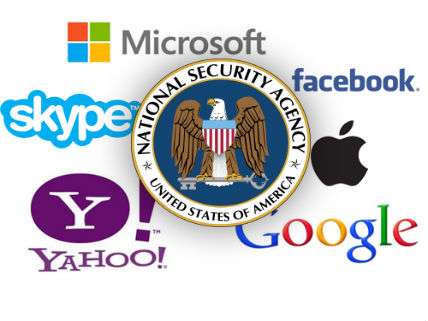Obama Administration to Expand Unconstitutional Warrantless NSA Spying on Americans
The new surveillance rules have nothing to do with stopping terrorism.

Spy agency officials and lawyers are putting together a new set of rules that will allow the National Security Agency to share whatever information it garners from its extensive electronic surveillance efforts about American citizens with other law enforcement agencies, reported the New York Times a couple of weeks ago. No warrants needed.
This expansion of domestic surveillance is particularly galling coming from the administration of a man who declared in 2007:
This [Bush] administration also puts forward a false choice between the liberties we cherish and the security we provide. I will provide our intelligence and law enforcement agencies with the tools they need to track and take out the terrorists without undermining our Constitution and our freedom. That means no more illegal wiretapping of American citizens. No more national security letters to spy on citizens who are not suspected of a crime. No more tracking citizens who do nothing more than protest a misguided war. That is not who we are. And it is not what is necessary to defeat the terrorists. The FISA court works. The separation of powers works. Our Constitution works. We will again set an example for the world that the law is not subject to the whims of stubborn rulers, and that justice is not arbitrary.
The Massachusetts ACLU blog Privacy SOS explains how the new rules being promulgated by the Obama administration imperil Americans' privacy and their Fourth Amendment rights:
What does this rule change mean for you? In short, domestic law enforcement officials now have access to huge troves of American communications, obtained without warrants, that they can use to put people in cages. FBI agents don't need to have any "national security" related reason to plug your name, email address, phone number, or other "selector" into the NSA's gargantuan data trove. They can simply poke around in your private information in the course of totally routine investigations. And if they find something that suggests, say, involvement in illegal drug activity, they can send that information to local or state police. That means information the NSA collects for purposes of so-called "national security" will be used by police to lock up ordinary Americans for routine crimes. And we don't have to guess who's going to suffer this unconstitutional indignity the most brutally. It'll be Black, Brown, poor, immigrant, Muslim, and dissident Americans: the same people who are always targeted by law enforcement for extra "special" attention.
Former Reason editor, now at the Washington Post, Radley Balko adds:
This basically formalizes what was already happening under the radar. We've known for a couple of years now that the Drug Enforcement Administration and the IRS were getting information from the NSA. Because that information was obtained without a warrant, the agencies were instructed to engage in "parallel construction" when explaining to courts and defense attorneys how the information had been obtained. If you think parallel construction just sounds like a bureaucratically sterilized way of saying big stinking lie, well, you wouldn't be alone. And it certainly isn't the only time that that national security apparatus has let law enforcement agencies benefit from policies that are supposed to be reserved for terrorism investigations in order to get around the Fourth Amendment, then instructed those law enforcement agencies to misdirect, fudge and outright lie about how they obtained incriminating information — see the Stingray debacle. This isn't just a few rogue agents. The lying has been a matter of policy. We're now learning that the feds had these agreements with police agencies all over the country, affecting thousands of cases.
Over at The Week, reporter Ryan Cooper offers this terrifying headline: "Think the NSA is scary now? Wait till Donald Trump controls it."
Some days I fear for my country.


Show Comments (60)